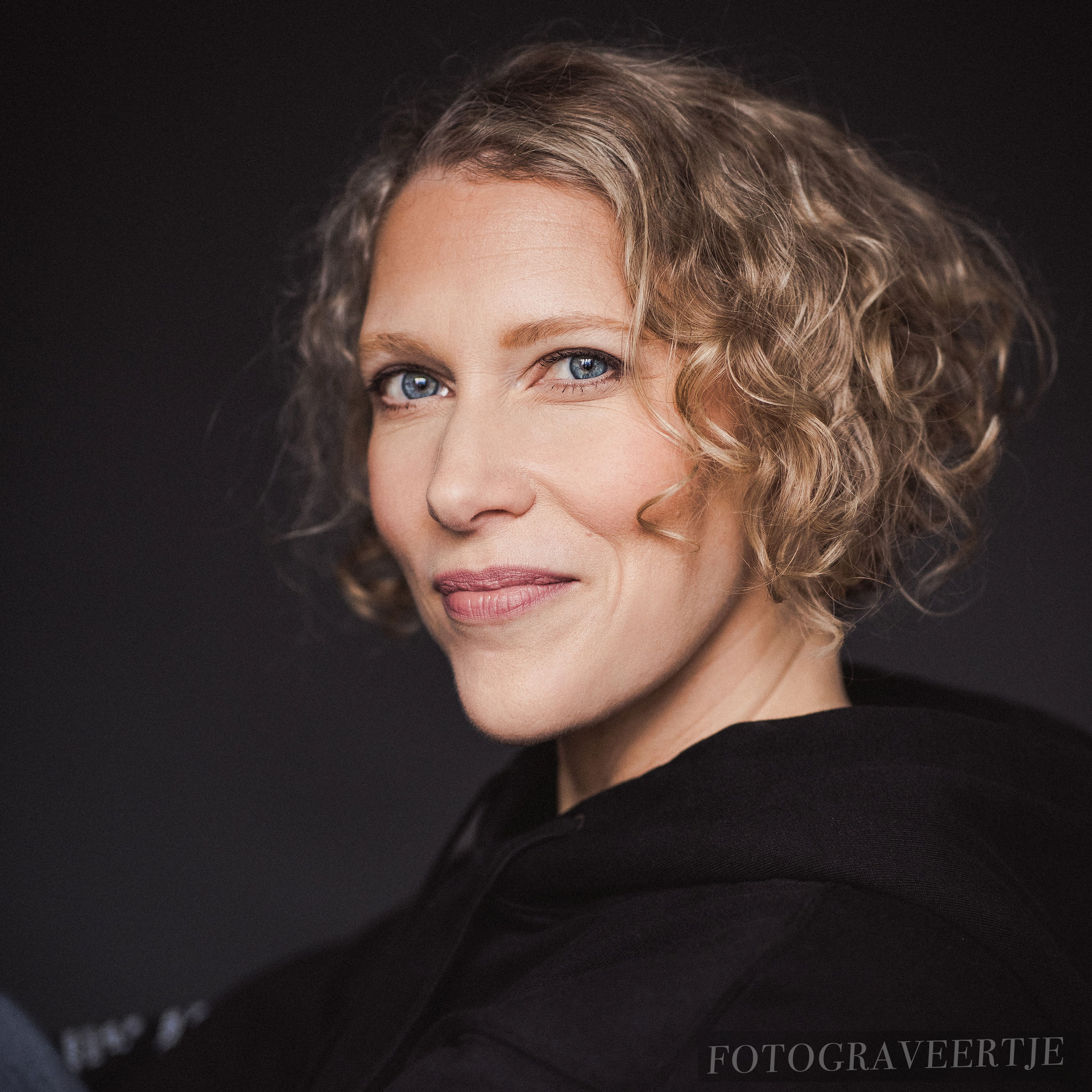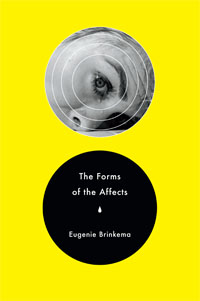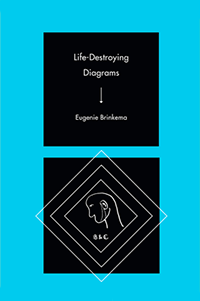Subjects
Subjects taught in recent years:
Research Interests
My work as a film theorist is situated within several broad rotations in the theoretical humanities: the “affective turn” and the “return to form” or “return to aesthetics.” For over a decade, I have mounted a polemic for a radical formalism, one that brings the demand for the necessity of formal reading to bear on a range of textual objects, from horror films to contemporary photography to gonzo pornography. My first book, The Forms of the Affects (Duke University Press, 2014), invented a new approach to a vital and contentious debate in the humanities: how to grapple with the affective dimensions of aesthetic objects. One persistent critical trope of the transdisciplinary “turn to affect” was the positioning of affect as something that resists structure, form, signification and textuality. My book functioned as a corrective to this tendency. Rejecting the emphasis on embodiment, emotion, feeling, and spectatorial experience that dominated theories of affect, the mode of criticism I invented located affects within the specific formal details of cinematic and textual construction. The Forms of the Affects makes a claim for the importance of close formal reading as a mode of generating new theoretical questions about sensation, intensity, and emotion’s vibrant disruptions—and for regarding affects themselves as having form.
Since the publication of that book, my research has complicated the implications of radical formalism in a series of concurrent projects: (1) my second book, Life-Destroying Diagrams; (2) a set of published articles comprising a project I call “Speculative Pornography”; and (3) essays on affect and problems of feeling in the works of contemporary visual artists (Larry Clark, Sophie Calle, the street photographer Boogie) and their relationships to epistemologies of exposure. What this recent work has in common is an interest in “testing” the implications of radical formalism on increasingly controversial terrain—after all, a conventional challenge to my work often takes the form of: What right does criticism have to abandon things, bodies, and worlds when those things, bodies, and worlds are being brutally destroyed? Grappling with that unease led to eight years of work on what became my second book, Life-Destroying Diagrams (Duke University Press, 2022), which brings the insights of radical formalism to bear on its riskiest terrain to date: the ethical and affective extremes of horror and love. Through close readings of works of film, literature, and philosophy, this book explores how aesthetic form and formal figures such as diagrams, grids, charts, lists, abecedaria, toroids, tempos, patterns, colors, negative space, lengths, increments, and thresholds attest to formal logics of torture and cruelty, violence and finitude, friendship and eros, debt and care. Beginning with a wholesale rethinking of the affect of horror, orienting it away from embodied models of feeling towards impersonal schemes and structures, the book moves outwards to consider the relation between objects and affects, humiliation and metaphysics, genre and the general, bodily destruction and aesthetic generation, geometry and scenography, hatred and value, love and measurement, and, ultimately, the tensions, hazards, and speculative promise of formalism itself.
Publications
Books
2022 Life-Destroying Diagrams (Durham, North Carolina: Duke University Press) 496 pages. 1st printing, February 2022.
2014 The Forms of the Affects (Durham, North Carolina: Duke University Press) xvi+347 pages. 2nd printing, 2015.
Articles/Chapters
2022 “Ring, Line, Rim, Bend,” Psychoanalysis & History 24.1, special issue on Lou Andreas-Salomé, Responses to “‘Anal’ and ‘Sexual’,” ed. Filippo Trentin and S. Pearl Brilmyer.
2021 “Form,” The Wiley Blackwell Companion to Visual Culture, ed. A. Joan Saab, Aubrey Anable, and Catherine Zuromskis.
2020 “Get Out, Race, and Formal Destiny (On Common Weirdness),” for The American Weird, ed. Julius Greve and Florian Zappe (Bloomsbury).
2020 “Colors Without Bodies: Wes Anderson’s Drab Ethics,” for Practical Aesthetics, ed. Bernd Herzogenrath (Bloomsbury).
2020 “Violence and the Fascination with Form,” special issue “On Fascination,” Postmodern Culture, ed. Mikko Tuhkanen.
2020 “Spit * Light * Spunk: Larry Clark, an Aesthetic of Frankness,” Abjection Incorporated: Mediating the Politics of Pleasure and Violence, ed. Nicholas Sammond and Maggie Hennefeld (Durham, NC: Duke University Press).
2019 “Form for the Blind (Porn and Description Without Guarantee),” special issue “Porn on the Couch: Sex, Psychoanalysis and Screen Cultures,” ed. Ricky Varghese, Porn Studies 6.1: 10-22.
2019 Review, A Theory of Regret (by Brian Price), The Journal of Cinema and Media Studies 58.2: 184-189.
2019 “Sticky, nimble, frantic, stuck: À l’intérieur and the Feel of Horror,” special issue, “Violent Feelings,” ed. Anna Ioanes and Douglas Dowland, LIT: Literature Interpretation Theory 30.1: 62-79.
2019 “(nearly) Nothing to Express : Horror : some Tread : a Toroid,” How to Do Things with Affects: Affective Triggers in Aesthetic Forms and Cultural Practices, ed. Tomas Jirsa and Ernst van Alphen (Leiden: Thamyris / Brill), pp. 82-99.
2018 “Introduction,” co-written with Adam Lowenstein, for “Dossier: Horror and the Aesthetics of Landscape,” ed. Eugenie Brinkema and Adam Lowenstein, Discourse: Journal for Theoretical Studies in Media and Culture 40.3 (Wayne State University Press): 333-341.
2018 “Strangers by Lakes: 1 or 2 or 4 or 5 or 10,” for “Dossier: Horror and the Aesthetics of Landscape,” ed. Eugenie Brinkema and Adam Lowenstein, Discourse: Journal for Theoretical Studies in Media and Culture 40.3 (Wayne State University Press): 370-381.
2018 “Kill is Kiss: Violence, Language, Virus, Love,” Michel Serres and the Crises of the Contemporary, ed. Rick Dolphijn (Bloomsbury), pp. 71-92.
2018 “Afterword: Of Bodies, changed to different bodies, changed to other forms,” special issue “Cinematic Bodies,” ed. Cáel M. Keegan, Eliza Steinbock, Laura Horak, Somatechnics 8.1 (Edinburgh University Press): 125-136.
2017 “Irrumation, the Interrogative: Rhythm and Description and Pornography” Polygraph 26 (Duke University): 130-164.
2017 “26 more or less: Sophie Calle’s Secrets,” An Inventory of Shimmers: Objects of Intimacy in Contemporary Art, ed. Henriette Huldisch. Munich, London, New York: DelMonico Books / Prestel, pp. 28-37.
2016 “On no longer being loved: 11 formal problems related to method,” special issue “Cinematic Affect,” ed. Anne Rutherford, The Cine-Files 10. <http://www.thecine-files.com/brinkema2016/>
2016 “Violence and the Diagram; Or, The Human Centipede,” dossier “The Clamor of the Visible,” qui parle 24 (2): 75-108.
2015 “Design Terminable and Interminable: the Possibility of Death in Final Destination,” special issue “The Design and Componentry of Horror,” ed. Caetlin Benson-Allott and Eugenie Brinkema, Journal of Visual Culture 14 (3): 298-310.
2014 “Rough Sex,” in Tim Dean, Steven Ruszczycky, and David Squires, eds., Porn Archives. Durham, North Carolina: Duke University Press, pp. 262-283.
2012 “A Mother is a Form of Time: Gilmore Girls and the Elasticity of In-finitude,” Discourse: Journal for Theoretical Studies in Media and Culture 34 (1): 3-31.
2012 “e.g., Dogtooth”, issue on Distance, World Picture 7. <http://www.worldpicturejournal.com/WP_7/Brinkema.html>
2011 “Nudity and the Question,” in Brigitte Peucker, ed., The Blackwell Companion to Fassbinder. Oxford: Wiley-Blackwell, pp. 142-158.
2011 “Critique of Silence,” special issue The Sense of Sound, ed. Rey Chow and James Steintrager, differences: A Journal of Feminist Cultural Studies 22 (2 & 3): 211-234.
2011 “Laura Dern’s Vomit, or, Kant and Derrida in Oz,” special issue Disgust and Spectatorship ed. Tina Kendall, Film-Philosophy 15 (2): 51-69.
2011 “Burn. Object. If.”, issue on Sustainability, World Picture 5. <http://www.worldpicturejournal.com/WP_5/Brinkema.html>
2010 “Rot’s Progress: Gastronomy According to Peter Greenaway,” special issue Reading Remains, ed. Ellen Rooney and Elizabeth Weed, differences: A Journal of Feminist Cultural Studies 21 (3): 73-96.
2010 “How to Do Things with Violences,” in Roy Grundmann, ed., The Blackwell Companion to Michael Haneke. Oxford: Wiley-Blackwell, pp. 354-370.
Awards
Modern Language Association First Book Prize, Honorable Mention, 2016
Class of 1943 Career Development Endowed Chair, MIT, 2015-2018
Old Dominion Leave, MIT, 2015
External Fellow, Newhouse Center for the Humanities, Wellesley College, 2012-2013
Dean’s Fund for Faculty Development, MIT, 2011, 2021
Joukowsky Outstanding Dissertation Award, Brown University, 2010
Albert Spaulding Cook Prize in Comparative Literature, Brown University, 2009
Dissertation Fellowship, Brown University, 2008-2009
Graduate Fellowship, Pembroke Center, Brown University, 2006-2007
Third Place Student Writing Award, Society for Cinema and Media Studies, 2006
Jack Kent Cooke Foundation Graduate Fellowship, 2002-2008
German Language and Literature Prize, Yale University, 2001
Levitan Award for Excellence in Teaching in the School of Humanities, Arts, and Social
Sciences, MIT, 2012
Presidential Award for Excellence in Teaching, Brown University, 2008
Talks
March 2022 Discussion/workshop on Life-Destroying Diagrams, UCLA, Los Angeles, California
March 2022 Discussion/workshop on Life-Destroying Diagrams, Princeton University, Princeton, New Jersey
November 2021 “Form is Vers,” Symposium on Hal Fischer, Krannert Art Museum, University of Illinois at Urbana-Champaign
September 2021 Keynote, “Materialities & Subjectivities,” Summer School for the Graduate School of the Arts and Humanities, Walter Benjamin Kolleg at the Faculty of Humanities of the University of Bern, Switzerland
June 2021 Lecture and Workshop, “Cinema and Affect,” Interdisciplinary Cultural Studies of the Graduate School of the Arts and Humanities, Walter Benjamin Kolleg at the Faculty of Humanities of the University of Bern, Switzerland
April 2021 Lecture, “Martyrs, Cruelty, Horror, Ethics,” Media Studies Interest Group, University of Michigan
March 2021 Graduate Workshop, “Form and Critique,” University of Wisconsin Madison
March 2021 Lecture, “The Violence of Fascination: Martyrs, Metaphysics, and Form,” and Workshop; Brown University Modern Culture and Media
February 2021 Keynote, “Frames, Windows, Mirrors,” NYU Cinema Studies Conference
October 2019 Lecture, “Incremental Love,” Institute for Advanced Study, and Workshop on “Radical Formalism and Horror” for University of Minnesota’s Moving Image & Media Studies Graduate Group, University of Minnesota, Minneapolis, MN



